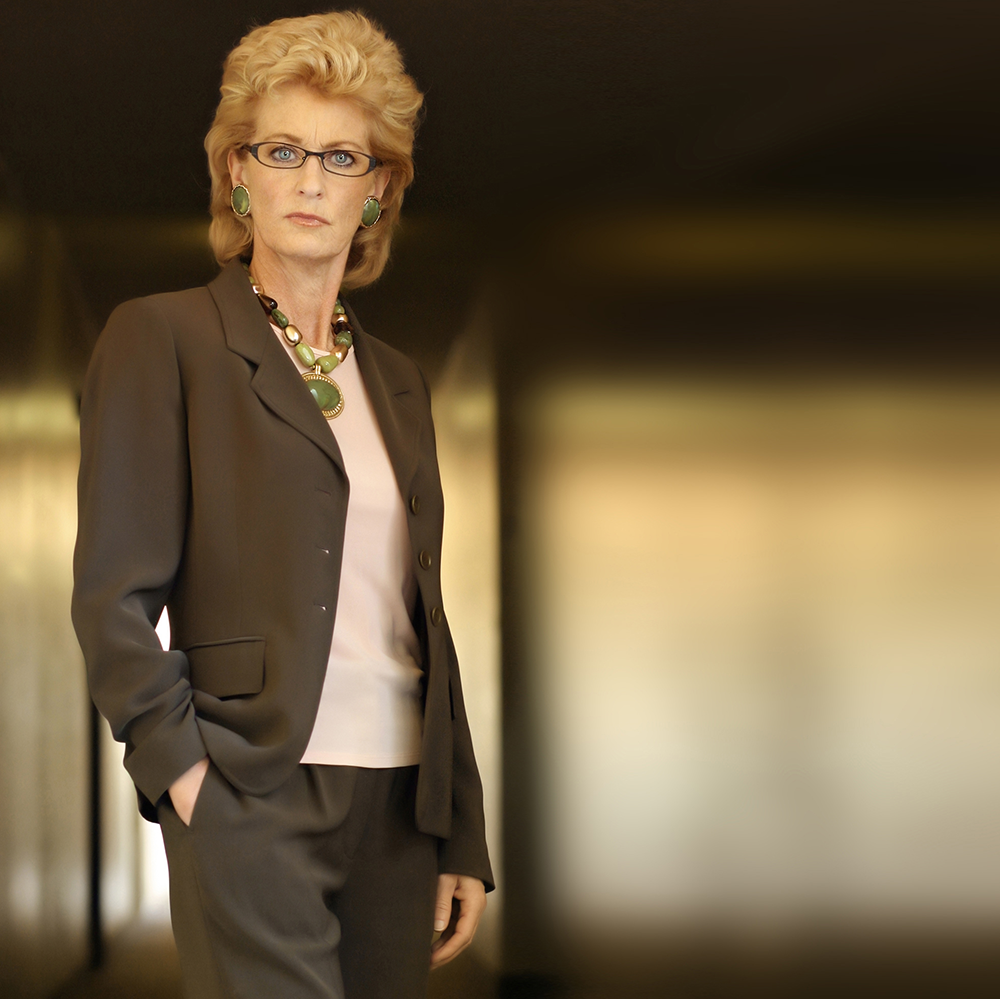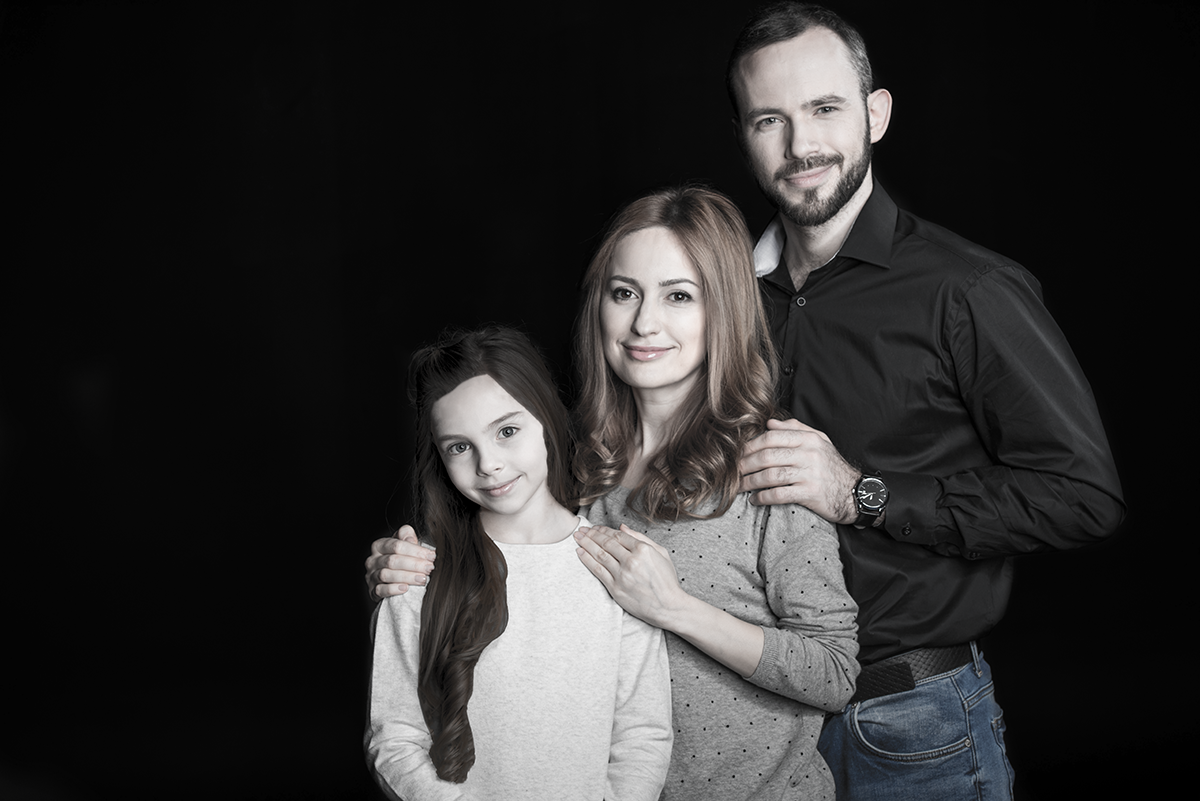The Last Crusade of Josephine Imre

Josephine Imre is one of the most successful businesspeople on the planet. As the founder of Softlogic, she built a multi-billion sovereign technology conglomerate from the ground up. But even the wealthy and well-connected can have their lives destroyed by disease.
So it was on March 27th, 2014 when Josephine Imre’s husband of 37 years, Artur Imre, died of blood loss and massive hemorrhaging. Artur Imre was one of the more than 60,000 people who died from The Outbreak. He died just four days before researchers from Paralux and Morgen Genentech announced they had discovered a cure for the disease.
“Bad luck can happen to all of us,” Josephine Imre told me as we sat on the forested grounds of her Central Wallamet Valley estate, “Bad luck can find any of us at any time, and it doesn’t matter if you’re as rich as Croesus or as powerful as Thor. Death comes for us all, that’s one of life’s few certainties.”
And here she got quiet for a moment.
“But,” she continued, “This wasn’t luck or chance. This was made on purpose. This thing that killed my beloved Artur and so many others in Cascadia… it was created, by humans. Maybe as a weapon. Maybe just to see if it could be done, but I’m certain it was created on purpose. I know this with every fibre of my being.”
Josephine Imre’s conviction that The Outbreak was a human-made tragedy has spread like wildfire in a parched forest in the wake of the devastation wrought by the deadly disease.
She is hardly the only person to make this claim, but she is one of the most prominent and she is definitely the richest, with a fortune somewhere in the neighbourhood of 41 billion sovereigns—most of the wealth stripped out of Softlogic, the technology company she founded.
That wealth and prominence have thrust her into the forefront of a strange phenomenon: the proliferation of groups, cults some might say, who see The Outbreak as a wake-up call for the end of days.
The end-of-days takes various forms for many of these groups. Some see it in stark religious terms: the Warriors of Loki, an offshoot of the Cult of Loki, see this as the start of the great battle for the world in which Loki and Fenrir will once again descend to the Earth and destroy the gods and humanity. Some see it in mystical terms, like the Sixth String, who see the disease as a cleansing tool of the soul before its ascension to the next plane of existence.
For Imre, however, the end-of-days have more to do with the inevitable destruction of the planet that will occur if we let ourselves continue down the path of technological progress.
It may seem odd that Imre, the founder of one of the largest technology companies in the world, would be the head of such a movement. The irony isn’t lost on her.
“I was a big part of the problem,” she says, “I helped spur this technological death-march forward as much as Toshe or Johannes or Peter. The difference is that I now know the true cost of this ‘progress’ and I know that it isn’t worth the cost. We think we’re in control of technology, but the truth is that it’s in control of us now. Maybe it’s already too late to save ourselves, but I hold out hope that we can still do something about it.”
“I loved him more than life itself…”
To understand how and why Josephine Imre is on her current quest you need to understand her relationship with her late husband, Artur.
“I met him at university,” she said, “I was a dumb kid. I didn’t know what I wanted to do with my life so I tried everything and I failed out of most things. My parents thought I was going to wreck my life. One day I saw this gorgeous man sitting and eating by himself and I thought I should do something every single day that scared the hell out of me so I walked up to him and sat down. I didn’t even ask if I could, I just sat down and started talking to him. He told me he didn’t really have time to talk. He had to eat quickly and then go to auditions for this play and so I said I wanted to audition, too. I hadn’t ever acted before. I hadn’t even read a play at that point, I don’t think, but I just decided to go with him and audition. We ended up reading a scene together and we just had this chemistry. When I looked into his eyes I just wanted to devour him. He had a girlfriend at the time, he said, and I said that didn’t bother me that after one taste of me he’d leave her in a second. I was so aggressive. I think it shocked him a little bit, but that’s just who I was. Anyway, he got a taste of me, I made sure of that, and after that we were inseparable.”
They had an incredibly close relationship all their lives.
“He was my best friend, absolutely, but it was more than that. After 37 years together we were like one person with one brain that we shared. After he died,” she trailed off here for a moment, looking wistfully out into the air around her, “I wanted to die. I thought about it. I thought about killing myself to be with him wherever whatever comes after this life. I thought about killing myself in so many different ways. You have to understand that I loved this man more than life itself and he was just taken from me so quickly and for a while, I didn’t know how to handle it. I almost did it, I almost killed myself.”
In the midst of her deepest despair, sitting on the balcony they used to share coffee on every morning, something unexpected happened to her that changed her trajectory.
“I was on the balcony when this bird flies up, it was a bluebird, which was rare around here, but I’d never seen anything like it before it was a bluebird with the most incredible blue in him. It reminded me so much of Artur’s eyes. It occurred to me that this little creature, this little bird, was the most beautiful and natural and pure thing I’d ever seen. I don’t know exactly how it happened, but at that moment I just knew what I had to do, I knew what Artur would want me to do. He would want me to try to give his death meaning by doing something to solve the catastrophe of the world.”
And, just like that, Purity was born.
“My entire 57% stake…”
On the morning of September 12th, 2014 Josephine Imre told producers at The Mark Marvel Show that she wanted to be interviewed by Marvel—that she would be making a big announcement.
Intrigued, Amy Ellingsworth called the billionaire back to inquire what exactly she wanted to talk about.
“I somehow didn’t think I would reach her when I called back,” Ellingsworth told me, “I figured I’d get an assistant or handler or something, but no… I got her. She picked up on the third ring. I asked her what the announcement was going to be and why she wanted to go on the show. She refused to give me specifics and just kept saying that she wanted to drop a bomb—that she wanted to announce something that would totally change the technological and cultural landscape of the world. Honestly, I thought she was half nuts, and that is honestly exactly why we put her on. Nothing is better television than watching a rich crank make outlandish statements. That’s why the Gearst family is on our speed dial. That’s why we couldn’t possibly say no to her.”
Mark Marvel, the fast-talking, semi-crazed business pundit’s show was always on immediately before the opening buzzer of the Cascadia Stock Exchange. It was where business leaders and personalities went to make announcements and make waves. Quite a few stock booms and busts could be traced to the rumours, innuendos, lies, half-truths, and stories told on his show.
Imre had been on the show before, maybe a dozen times, but it had been nearly two years since she’d been there last.
As the show started, Mark did his customary opening and then segued into his special guest: Softlogic founder Josephine Imre.
“I’d spoken maybe ten words to her before she went on the air,” says Ellingsworth, “I still didn’t have any idea what she was going to say, but I knew it would be big. I just got this feeling.”
As the camera moved to Imre she took a brief pause and this sort of half-smile crept onto her face.
“I saw that smile I thought there was something mischievous about it,” recalls Mark Marvel, “I thought to myself… I’m gonna need to call my broker after this.”
“This morning, at the opening of the CSX,” Imre started her announcement, “I will be liquidating all of my Softlogic holdings, my entire 57% stake in the company.”
“As soon as she said she was liquidating, I knew she was crashing the company, maybe even the entire technology sector. It was gonna be a blood-bath,” recalls Marvel.
“I founded Softlogic many years ago because I believed in the promise that technology, that technological advancement, would improve the lives of people around the world. I now know that to be false. I now know that the promise of technology is a broken one. I now know the truth: technology is destroying our lives, our species, our planet. I believe that the natural state of humanity is a pure one, that we are generally good, but that technology has corrupted us. It started with the till and the wheel. It has continued with the telephone, the transistor, and the microchip. My beloved husband, Artur, died because of the siren song of technology and I refuse to let his death be in vain or to watch idly by as another innocent human destroys their life and soul by listening to this siren song. I will see humanity returned to our pure state.”
Just like that, Purity grew from an idea to a movement.
Drips and drabs at first
True to her word, Imre liquidated her stake in Softlogic and the entire sector fell off a cliff. Imre’s stake suddenly being sold sent the price off a cliff. The 41 billion she made off with was only a fraction of the company’s value at the time. Now, almost a year later, Softlogic’s market cap is only a fraction of that fraction: not even one billion sovereigns.
“Everybody fell off a cliff,” says Marvel, “Many companies folded altogether, ones that had built themselves on Softlogic technology… they just collapsed altogether. Paralux was fine, but even they took a beating. I bet even Toshe Marinos was sweating bullets that week.”
Because she’d started the avalanche, Imre held on to a lot of her fortune. Some have called her a hypocrite because of this, but she answers that charge head-on:
“I’m not an idiot. I know things in this world cost money. Getting anything done costs money. Destroying the technology industry and starting a new world order… that’s going to be very, very expensive.”
Almost immediately people started flocking to her. When she returned to her estate from the studio there were people waiting at her gates. They supported her and they wanted to help.
Slowly, in drips and drabs at first, but day after day, the people kept coming.
“They started bringing their phones with them, their computers. They threw them into a big pile outside of my gates and they set them on fire. Maybe not the most ecologically sound way to start a new world order, for sure,” Imre says, “But it was a huge statement, an important statement.”
Soon more than two hundred people were camped outside her gates. That’s when she decided to let them in.
“I welcomed them in and set them up on the south lawn of my estate and that’s where I decided we would start to create the community. It would be based on the idea of using as little technology as possible, of trying to get to zero, and returning ourselves to that original pure state of nature.”
People kept showing up. Within weeks more than a thousand people were living there. They’d created small gardens and small communal living areas that replaced the initial tents they set up. When they didn’t have something they needed, Imre ponied up the cash to bring it in. Including seeds from around the world, bamboo for building structures, and wood for making hand tools.
“The goal,” Imre says, “is to slowly regress ourselves to the past. Most of the damage to the world was done since the industrial revolution of the 1700s. Our goal is to roll back before that and keep going back as much as we can.”
For that, they needed more people and more know-how. They needed more to join them.
“That’s when the preaching started,” says Celina Poe, a youthful blond and an early arrival to The Farm told me, “That’s when we started to go out into the world to engage with those around who had the sickness still.”
The Farm is what members of Purity call Imre’s Wallamet estate and the “sickness” is the term that they use to refer to the thrall of technology.
“Our job is to tend to the sick, to help them get well. We do this by talking to whomever we can about the ills of technology,” Celina told me.
They’re hard to miss, these missionaries of simplicity, with their brown robes and close-cropped hair. They can be found on nearly every street corner in Cascadia and the cities beyond.
“I love administering to the sick,” says Poe, “When you reach a soul and they finally understand that they’ve been a prisoner to technology, that technology has become their master and not the other way around. That moment is the moment when you’ve saved somebody from a fate worse than death and it’s the best feeling you can get in the world.”
Just like that, Purity became a force to be reckoned with.
“Eden has taken a dark turn…”
On the morning of April 13th, 2015 two employees of Morgen Genentech, Paolo Magnum and Wendy Talltree were abducted from the employee parking lot by what authorities believe to be six armed assailants.
Kidnappings are rare in Cascadia and even rarer in Pørtland where ubiquitous cameras make getting away with any crime very difficult, but these kidnappings were special. They were conducted by people wearing the trademark brown robes of the Purity movement—with the addition of plain brown masks to hide their faces.
These masked figures revealed themselves to all of Cascadia in a video recording distributed to every major news outlet. In the video, they explained themselves to be members of Purity Control, a group based on the principles of Purity but with the mission to cleanse the world of the dark agents of technology. They specifically singled out Morgen Genentech and Paralux as their prime targets.
“It’s hooliganism,” says Taline Mooshian of the Complex Investigations Taskforce, which is charged with investigating Purity Control, “There’s a lot to admire in Purity’s ideals, sure, but Eden has taken a dark turn over there. Josephine Imre has flared up a lot of people with her aggressive stances. Maybe she hasn’t directly encouraged violence, but she hasn’t exactly been forceful in her rebuttals of it either.”
I asked Mooshian if she thought that Imre was ultimately behind the militant offshoot of her group.
“I can’t comment on that, but I will say that it’s possible to see the loss of her husband as motivation for something terrible, for a terrible kind of vengeance against those who she feels wronged her. I’m in my line of work, however, because I naturally see the darker side of humanity.”
Since its debut last year, Purity Control has claimed responsibility for more than a dozen attacks on Paralux and Morgen employees and their families.
“It’s not small potatoes,” says Mooshian, “And whether it does reach all the way to Imre, well, that’s something we’re looking at.”
Many of Imre’s followers don’t think that’s possible.
“It makes me sick,” says Celina Poe when I ask her about Purity Control, “It’s not what our movement is about at all. It’s not what Josie is about at all. She wants us to live in harmony with each other and with nature. Purity Control is giving all of us and our whole movement a bad name.”
When I ask Imre herself about Purity Control she gives the same stock answer to me that she’s given to everybody when they ask about it.
“I don’t condone violence, but I do understand it. Violence is borne out of frustration with the ills of the current world. It’s natural that people would want to cut the head off the snake. I understand that impulse, I’ve felt it myself, but it’s not where we should place our faith. It’s not where I try to place my faith.”
She pauses again, as she often does in our conversations when remembering something.
“Whenever I feel angry I just try to picture that bluebird in my head and I ask myself: what would Artur want me to do?”




